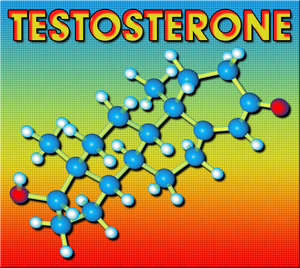Introduction to Sexual Arousal
Sexual arousal is a complex physiological process that involves the brain, hormones, nerves, muscles, and blood vessels. For American males, understanding this process is crucial, especially when issues such as soft erections arise. A soft erection, medically known as erectile dysfunction (ED), can be a distressing condition that affects not only sexual performance but also self-esteem and overall quality of life.
The Mechanism of Erection
The process of achieving an erection begins in the brain. When a man is sexually stimulated, the brain sends signals through the nervous system to the penis. These signals trigger the release of nitric oxide, a chemical that relaxes the smooth muscles in the penis. This relaxation allows the blood vessels to dilate, increasing blood flow into the corpora cavernosa, the two chambers that run the length of the penis. As these chambers fill with blood, the penis becomes erect.
What Goes Wrong in Soft Erections?
Soft erections occur when this intricate process is disrupted. Several factors can contribute to this disruption:
- **Vascular Issues:** The most common cause of ED is vascular disease, which affects the blood vessels. Conditions such as atherosclerosis can lead to the narrowing and hardening of arteries, reducing blood flow to the penis. This diminished blood flow can result in difficulty achieving or maintaining an erection.
- **Neurological Factors:** The nervous system plays a critical role in sexual arousal. Damage to nerves due to conditions like diabetes, multiple sclerosis, or spinal cord injuries can impair the signals sent from the brain to the penis, leading to soft erections.
- **Hormonal Imbalances:** Testosterone is a key hormone in male sexual function. Low levels of testosterone can affect libido and the ability to achieve an erection. Other hormonal imbalances, such as those involving thyroid hormones, can also contribute to ED.
- **Psychological Factors:** Stress, anxiety, depression, and relationship issues can significantly impact sexual arousal. Psychological factors can create a cycle of performance anxiety, where the fear of not being able to achieve an erection can itself cause ED.
- **Lifestyle and Health Factors:** Smoking, excessive alcohol consumption, obesity, and a sedentary lifestyle can all contribute to the development of ED. These factors can exacerbate underlying health conditions that affect sexual function.
Diagnosis and Treatment
Diagnosing the cause of soft erections involves a comprehensive evaluation by a healthcare provider. This may include a physical examination, blood tests to check hormone levels, and possibly a referral to a specialist for further testing, such as a penile Doppler ultrasound to assess blood flow.
Treatment options for ED vary depending on the underlying cause. For vascular issues, medications like phosphodiesterase type 5 (PDE5) inhibitors, such as sildenafil (Viagra), can help improve blood flow to the penis. For hormonal imbalances, testosterone replacement therapy may be recommended. Psychological counseling or sex therapy can be beneficial for addressing mental health-related causes of ED. Lifestyle modifications, such as quitting smoking, reducing alcohol intake, and increasing physical activity, can also improve erectile function.
Conclusion
Understanding the science behind sexual arousal and the factors that can lead to soft erections is essential for American males facing this issue. By recognizing the potential causes and seeking appropriate medical advice, men can take proactive steps towards managing and potentially resolving erectile dysfunction. With the right approach, it is possible to restore sexual health and enhance overall well-being.
Contact Us Today For A Free Consultation

- Demystifying the Enigma of Soft Erections: A Comprehensive Guide [Last Updated On: February 25th, 2025] [Originally Added On: February 25th, 2025]
- Exploring the Mind-Body Connection: Harnessing Meditation and Mindfulness for Enhanced Erections [Last Updated On: February 25th, 2025] [Originally Added On: February 25th, 2025]
- Understanding Male Potency: Deciphering the Science behind Erectile Dysfunction [Last Updated On: February 26th, 2025] [Originally Added On: February 26th, 2025]
- Masculinity Reenvisioned: Soft Erections as an Emblem of Strength [Last Updated On: February 27th, 2025] [Originally Added On: February 27th, 2025]
- Revitalizing Virility: Lifestyle Rewiring for Enhanced Erectile Potential [Last Updated On: February 28th, 2025] [Originally Added On: February 28th, 2025]
- Whispering Battles: An Introspection into the Private Struggles with Erectile Dysfunction [Last Updated On: February 28th, 2025] [Originally Added On: February 28th, 2025]
- Unraveling the Stress Matrix: Decoding the Impact of Psychological Stress on Erectile Function [Last Updated On: March 1st, 2025] [Originally Added On: March 1st, 2025]
- Unveiling the Hidden Struggles: A Comprehensive Overview of Erectile Dysfunction [Last Updated On: March 2nd, 2025] [Originally Added On: March 2nd, 2025]
- Soft Erections in Aging Men: Causes, Diagnosis, and Treatment Options [Last Updated On: March 3rd, 2025] [Originally Added On: March 3rd, 2025]
- Enhancing Erectile Function Through Exercise: Understanding Its Physiological and Psychological Benefits [Last Updated On: March 3rd, 2025] [Originally Added On: March 3rd, 2025]
- Exploring Diet's Impact on Erectile Function and Health [Last Updated On: March 4th, 2025] [Originally Added On: March 4th, 2025]
- Exploring the Crucial Role of Sleep in Enhancing Male Erectile Function and Health [Last Updated On: March 5th, 2025] [Originally Added On: March 5th, 2025]
- Understanding and Managing Erectile Dysfunction: Causes, Treatments, and Lifestyle Changes [Last Updated On: March 6th, 2025] [Originally Added On: March 6th, 2025]
- Optimizing Hormonal Balance for Erectile Health: A Comprehensive Guide for Men's Well-being [Last Updated On: March 7th, 2025] [Originally Added On: March 7th, 2025]
- The Crucial Link Between Vascular Health and Erectile Function: A Comprehensive Exploration [Last Updated On: March 8th, 2025] [Originally Added On: March 8th, 2025]
- The Holistic Connection: Erectile Dysfunction as a Reflection of Overall Men's Health [Last Updated On: March 9th, 2025] [Originally Added On: March 9th, 2025]
- From Flab to Firm: How Weight Loss Can Enhance Male Sexual Health and Combat Soft Erections [Last Updated On: March 9th, 2025] [Originally Added On: March 9th, 2025]
- Debunking Myths: Understanding Soft Erections and Effective ED Treatments for American Men [Last Updated On: March 12th, 2025] [Originally Added On: March 12th, 2025]
- Understanding the Impact of Medications on Male Sexual Health: Navigating Drug-Induced Soft Erections [Last Updated On: March 13th, 2025] [Originally Added On: March 13th, 2025]
- Stress and Soft Erections: Understanding Impacts and Effective Management Strategies [Last Updated On: March 15th, 2025] [Originally Added On: March 15th, 2025]
- Vitamins and Minerals: Enhancing Male Sexual Health and Erection Quality [Last Updated On: March 16th, 2025] [Originally Added On: March 16th, 2025]
- Counseling's Role in Overcoming Soft Erections: A Holistic Approach [Last Updated On: March 18th, 2025] [Originally Added On: March 18th, 2025]
- Smoking's Impact on American Males' Erectile Health and Benefits of Quitting [Last Updated On: March 18th, 2025] [Originally Added On: March 18th, 2025]
- Herbal Remedies for Enhancing Erectile Function in American Males [Last Updated On: March 19th, 2025] [Originally Added On: March 19th, 2025]
- Understanding and Managing Soft Erections: Causes, Treatments, and Prevention Strategies [Last Updated On: March 19th, 2025] [Originally Added On: March 19th, 2025]
- Soft Erections in Young Men: Causes, Solutions, and Importance of Professional Help [Last Updated On: March 19th, 2025] [Originally Added On: March 19th, 2025]
- Addressing Soft Erections: Communication and Collaborative Strategies for Couples [Last Updated On: March 20th, 2025] [Originally Added On: March 20th, 2025]
- Alcohol's Impact on Erection Quality: Strategies for Optimal Sexual Health [Last Updated On: March 20th, 2025] [Originally Added On: March 20th, 2025]
- Work Stress and Erectile Dysfunction: Impacts and Management Strategies for American Men [Last Updated On: March 20th, 2025] [Originally Added On: March 20th, 2025]
- Diagnosing Soft Erections: Comprehensive Approaches for American Males' Urological Health [Last Updated On: March 21st, 2025] [Originally Added On: March 21st, 2025]
- Pelvic Floor Exercises: Enhancing Erection Quality and Overall Health in American Males [Last Updated On: March 21st, 2025] [Originally Added On: March 21st, 2025]
- Enhancing Male Sexual Health: Diet, Exercise, and Lifestyle Strategies for Strong Erections [Last Updated On: March 22nd, 2025] [Originally Added On: March 22nd, 2025]
- Economic Impacts of Erectile Dysfunction on American Men: Costs, Productivity, and Relationships [Last Updated On: March 23rd, 2025] [Originally Added On: March 23rd, 2025]
- Understanding Soft Erections: Causes, Impacts, and Strategies for Sexual Confidence [Last Updated On: March 23rd, 2025] [Originally Added On: March 23rd, 2025]
- Chronic Inflammation's Impact on Sexual Health: Mechanisms and Management Strategies [Last Updated On: March 23rd, 2025] [Originally Added On: March 23rd, 2025]
- Overcoming Soft Erections: From Frustration to Fulfillment with Medical and Lifestyle Solutions [Last Updated On: March 23rd, 2025] [Originally Added On: March 23rd, 2025]
- Innovative Devices and Holistic Approaches for Managing Soft Erections and ED [Last Updated On: March 23rd, 2025] [Originally Added On: March 23rd, 2025]
- Soft Erections: Understanding, Impact, and Building Intimacy in Relationships [Last Updated On: March 24th, 2025] [Originally Added On: March 24th, 2025]
- Cardiovascular Health's Impact on Erectile Function and Soft Erections in Men [Last Updated On: March 24th, 2025] [Originally Added On: March 24th, 2025]
- Alternative Medicine and Acupuncture for Enhancing Erectile Health in American Males [Last Updated On: March 24th, 2025] [Originally Added On: March 24th, 2025]
- Managing Soft Erections: Lifestyle and Psychological Strategies for American Men [Last Updated On: March 24th, 2025] [Originally Added On: March 24th, 2025]
- Managing Soft Erections: Understanding Causes, Preparing for Doctor Visits, and Exploring Treatments [Last Updated On: March 24th, 2025] [Originally Added On: March 24th, 2025]
- Mindfulness Techniques for Managing Soft Erections in American Men [Last Updated On: March 24th, 2025] [Originally Added On: March 24th, 2025]
- Soft Erections and Self-Esteem: Psychological Strategies for American Men [Last Updated On: March 24th, 2025] [Originally Added On: March 24th, 2025]
- Superfoods Boost Vascular Health, Enhance Erection Quality: Dark Chocolate, Walnuts, More [Last Updated On: March 24th, 2025] [Originally Added On: March 24th, 2025]
- Prostate Health and Soft Erections: Understanding and Managing the Connection [Last Updated On: March 24th, 2025] [Originally Added On: March 24th, 2025]
- Digital Health Tools for Managing Soft Erections in American Men [Last Updated On: March 24th, 2025] [Originally Added On: March 24th, 2025]
- Exploring Alternative Therapies for Erectile Dysfunction in American Men [Last Updated On: March 25th, 2025] [Originally Added On: March 25th, 2025]
- Physical Therapy: A Promising Solution for Soft Erections and Erectile Dysfunction [Last Updated On: March 25th, 2025] [Originally Added On: March 25th, 2025]
- Environmental Toxins and Their Impact on Male Sexual Health: Understanding Soft Erections [Last Updated On: March 25th, 2025] [Originally Added On: March 25th, 2025]
- Obesity and Soft Erections: Enhancing Sexual Health Through Weight Management [Last Updated On: March 25th, 2025] [Originally Added On: March 25th, 2025]
- Understanding Soft Erections: Causes, Impacts, and Management Strategies for American Males [Last Updated On: March 25th, 2025] [Originally Added On: March 25th, 2025]
- PDE5 Inhibitors: A Targeted Solution for Soft Erections and ED Management [Last Updated On: March 25th, 2025] [Originally Added On: March 25th, 2025]
- Innovative Technologies Transforming Erectile Dysfunction Treatment in American Males [Last Updated On: March 25th, 2025] [Originally Added On: March 25th, 2025]
- Hormonal Balance: Key to Enhancing Erectile Strength in American Men [Last Updated On: March 25th, 2025] [Originally Added On: March 25th, 2025]
- Soft Erections in American Males: Impact of Anxiety, Depression, and Holistic Treatment Approaches [Last Updated On: March 25th, 2025] [Originally Added On: March 25th, 2025]
- Nitric Oxide's Role in Enhancing Erections: Mechanisms and Strategies [Last Updated On: March 25th, 2025] [Originally Added On: March 25th, 2025]
- Understanding Soft Erections: Causes, Treatments, and Breaking Stereotypes in American Men [Last Updated On: March 26th, 2025] [Originally Added On: March 26th, 2025]
- Soft Erections and Metabolic Syndrome: Causes, Implications, and Management for American Males [Last Updated On: March 26th, 2025] [Originally Added On: March 26th, 2025]
- Sedentary Lifestyles and Erection Health: The Importance of Physical Activity [Last Updated On: March 26th, 2025] [Originally Added On: March 26th, 2025]
- Genetic and Epigenetic Influences on Erectile Dysfunction: A Comprehensive Overview [Last Updated On: March 26th, 2025] [Originally Added On: March 26th, 2025]
- Soft Erections vs. Erectile Dysfunction: Causes, Impacts, and Treatments for American Men [Last Updated On: March 26th, 2025] [Originally Added On: March 26th, 2025]
- Medications Causing Soft Erections: Causes, Identification, and Management Strategies [Last Updated On: March 26th, 2025] [Originally Added On: March 26th, 2025]
- Biofeedback: A Non-Invasive Solution for Enhancing Erectile Control in American Males [Last Updated On: March 27th, 2025] [Originally Added On: March 27th, 2025]
- Enhancing Sexual Stamina: Techniques for Managing Soft Erections in American Men [Last Updated On: March 27th, 2025] [Originally Added On: March 27th, 2025]
- Sleep Disorders and Soft Erections: Impact on American Males' Sexual Health [Last Updated On: March 28th, 2025] [Originally Added On: March 28th, 2025]
- Cardiovascular Exercise Boosts Erection Quality in American Men [Last Updated On: March 29th, 2025] [Originally Added On: March 29th, 2025]
- Stress Management Techniques to Improve Erectile Function in American Men [Last Updated On: March 30th, 2025] [Originally Added On: March 30th, 2025]
- Redefining Masculinity: Embracing Soft Erections and Enhancing Sexual Confidence [Last Updated On: March 30th, 2025] [Originally Added On: March 30th, 2025]
- Understanding and Treating Soft Erections: Causes, Therapies, and Surgical Options [Last Updated On: March 31st, 2025] [Originally Added On: March 31st, 2025]
- Soft Erections: Understanding, Impact, and Solutions for American Men [Last Updated On: April 2nd, 2025] [Originally Added On: April 2nd, 2025]
- Nerve Health's Crucial Role in Enhancing Erectile Function for American Men [Last Updated On: April 2nd, 2025] [Originally Added On: April 2nd, 2025]
- Innovative Research and Technologies Transforming Soft Erection Treatment [Last Updated On: April 3rd, 2025] [Originally Added On: April 3rd, 2025]
- Lifestyle Overhauls Boost Erection Quality: Diet, Exercise, and Health Management [Last Updated On: April 5th, 2025] [Originally Added On: April 5th, 2025]
- Cortisol's Impact on Erectile Dysfunction: Managing Stress for Better Sexual Health [Last Updated On: April 6th, 2025] [Originally Added On: April 6th, 2025]
- Breaking Barriers: Discussing Soft Erections and ED Among American Men [Last Updated On: April 8th, 2025] [Originally Added On: April 8th, 2025]
- Natural Aphrodisiacs: Exploring Their Impact on Male Sexual Health and ED [Last Updated On: April 8th, 2025] [Originally Added On: April 8th, 2025]
- Holistic Strategies for Enhancing Male Sexual Performance and Erection Quality [Last Updated On: April 9th, 2025] [Originally Added On: April 9th, 2025]
- Soft Erections: Physical, Psychological, and Social Impacts on American Men [Last Updated On: April 10th, 2025] [Originally Added On: April 10th, 2025]
- Relationship Dynamics and Their Impact on Erectile Function in American Males [Last Updated On: April 10th, 2025] [Originally Added On: April 10th, 2025]
Word Count: 556





















